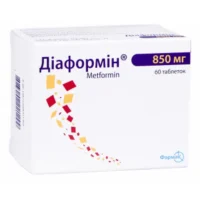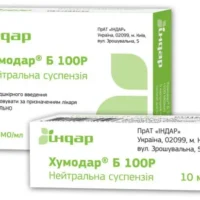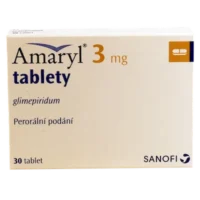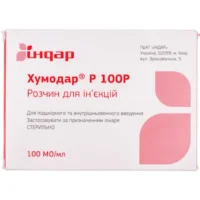Description
Diapirid (Glimepiride) Tablets 4 mg. №30
Ingredients
Active ingredient: Glimepiride 4 mg.
Other ingredients: Microcrystalline cellulose, lactose monohydrate, povidone, sodium starch glycolate, and magnesium stearate.
Dosage
Dosage: The usual starting dose is 1 to 2 mg once daily with breakfast or the first main meal. The maximum recommended dose is 8 mg once daily.
Indications
Indicated for: Diapirid tablets are indicated as an adjunct to diet and exercise to improve glycemic control in adults with type 2 diabetes mellitus.
Contraindications
Contraindications: Diapirid tablets are contraindicated in patients with a history of hypersensitivity to glimepiride or other sulfonylureas.
Directions
Directions: Take Diapirid tablets exactly as prescribed by your healthcare provider. Swallow the tablet whole with a glass of water.
Scientific Evidence
Pharmacological effects: Glimepiride works by stimulating the release of insulin from the pancreas, thereby lowering blood sugar levels. It also improves insulin sensitivity in peripheral tissues.
Clinical trials: Clinical studies have shown that glimepiride is effective in reducing HbA1c levels and improving glycemic control in patients with type 2 diabetes. A study by Schernthaner et al. (2001) demonstrated the long-term efficacy and safety of glimepiride in the management of diabetes.
Additional Information
Warnings: Diapirid tablets may cause hypoglycemia. It is important to monitor blood sugar levels regularly while taking this medication.
Storage: Store Diapirid tablets at room temperature away from moisture and heat.
Glimepiride, the active ingredient in Diapirid tablets, is a sulfonylurea that helps to control blood sugar levels in patients with type 2 diabetes. It acts by increasing the release of insulin from the pancreas, which in turn reduces blood glucose levels. Additionally, glimepiride improves the body’s response to insulin, allowing cells to take up and use glucose more effectively.
Clinical trials have shown that glimepiride is comparable in efficacy to other sulfonylureas in managing diabetes. A study by Owens et al. (2000) compared the effectiveness of glimepiride with glibenclamide and found similar improvements in glycemic control with both medications. This highlights the role of glimepiride as a valuable treatment option for patients with type 2 diabetes.





